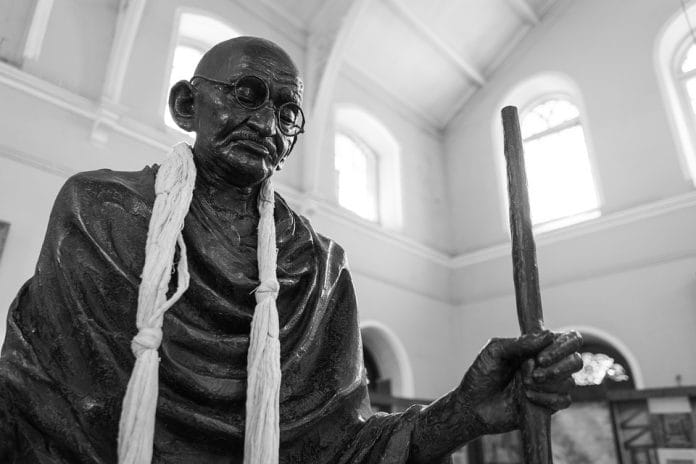While there seems to be proof of Gandhi’s anti-black racism, as of now, there is no conclusive evidence to suggest he was a misogynist or responsible for strengthening India’s horrid caste system.
It is often said that Mahatma Gandhi’s only remaining influence on the modern Indian republic are his statues. Ironically, his statues, specifically the legacy they represent, have come under sharp scrutiny in several countries.
Canada’s Carleton University in Ottawa is the ground for the most recent such protest, where a movement is underway to have a Gandhi statue removed from the campus.
It all started with an opinion piece by the president of the university’s African Student Association, KennithAliu, where he alleged that Gandhi was an anti-black racist and misogynist who helped strengthen the caste system in Indian society.
“There are two reasons to reject the myth about Gandhi and the statue placed in his honour,” he wrote.
“First, the violence of Gandhi’s anti-black racism has largely been ignored and its history erased because of the overarching positive narrative commonly associated with his activism.
“Such narratives fail to provide nuance to the impact he had on the various communities he encountered and addressed through his activism. Secondly, they do not account for how his pernicious anti-blackness still resonates within south Asian communities to the detriment of black peoples existing within their milieu.
“To be treated as subhuman is the unacknowledged plight of black immigrants in India, and of politically disenfranchised Afro-Indians, such as the siddis,” he added.
Carleton has officially distanced itself from the controversy and refused to remove the statue.
The big picture
In the past few years there have been several such anti-Gandhi campaigns abroad to seek the removal of his statues. There were protests at Carleton in 2011, when the Indian High Commission at Ottawa gifted the statue to Canada, and demands have been made to remove his sculptures from the US cities of Sacramento, Cerritos and San Francisco. In 2016, an agitation succeeded in securing his statue’s removal from the University of Ghana in 2016.
While the protest at Carleton is specific to Gandhi, there is more to it than meets the eye. A better context would be to locate these protests within the growing movements in the West regarding the entrenched racism against blacks and violence against women. There is a growing tendency among social science students and faculty to scrutinise historical leaders with the same standards we use for contemporary ones.
In the past, there have been ample press-driven smear campaigns in the West to “inform” people about Gandhi’s “other not-so noble traits”. But this new wave of agitations is driven by markedly different millennial movements to undo past wrongs. Participants argue that discounting Gandhi’s racism or misogyny on account of his legacy of non-violence would be an unjust fallacy. Indeed, across several North American universities, students are beginning to adopt a more nuanced view of Gandhi.
Legacy under siege
Statues and monuments constitute public memory. There are several examples of monuments and statues continuing to be an active part of culture, and even politics, in post-Soviet eastern European republics. Even the recent wave of statue vigilantism in India is a testament to the fact.
However, in the Carleton version of anti-Gandhi protests, what needs to be questioned is not the symbolic action of removing his statue, but the accuracy of the arguments put forth by protesters. While there seems to be proof of Gandhi’s anti-black racism, as of now, there is no conclusive evidence to suggest he was a misogynist or responsible for strengthening India’s horrid caste system. Even so, while blacks undoubtedly face vile racism in India, it would be a stretch to hold Gandhi responsible for it.
For decades together, after India’s Independence, Gandhi’s legacy was arguably India’s greatest foreign policy influence. Even today, nothing comes close to Gandhi in reflecting India’s soft power and its pacifist tradition. Surprisingly, accurately or otherwise, that very Gandhian legacy is now being questioned.
Srijan Shukla is a student of comparative politics and international relations at McGill University, Canada.







You guys are providing me a lot of worthy information which a biased news channel can never do for me or anyone else. I appreciate your enthusiasm and expect that you will carry on providing such informative articles.